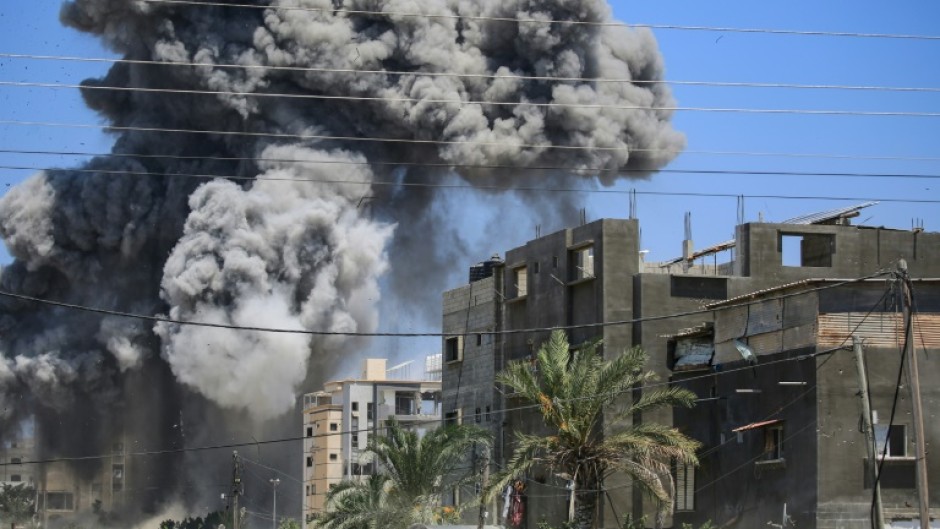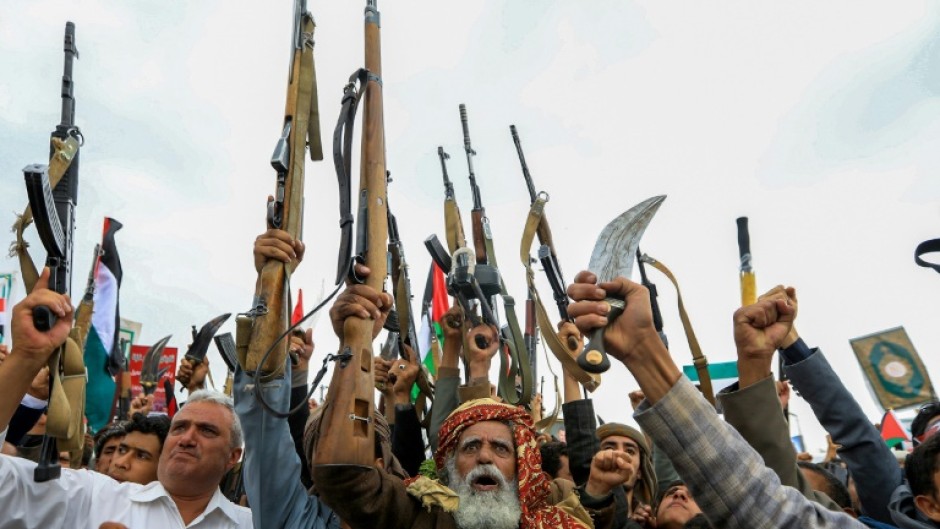Yemen's Huthi rebels promised a "huge" retaliation against Israel on Sunday following a deadly strike on the port of Hodeida, as violence sparked by the Gaza war gripped the region.
Israel bombed the Palestinian territory, Lebanon and Yemen in quick succession this week in response to attacks from Iran-backed militant groups.
Despite Washington asserting that a deal to end more than nine months of devastating war between Israel and Gaza rulers Hamas was near the "goal line", the Israeli military said it intercepted a missile fired from Yemen as it pressed on with its offensive in the besieged Gaza Strip.
Dozens have been killed since Saturday across Gaza, the civil defence agency said, including in strikes on homes in the central Nuseirat and Bureij areas and displaced people near southern Khan Yunis.
Residents said a major operation was underway in the Saudi district west of Rafah in the south, reporting heavy artillery and clashes.
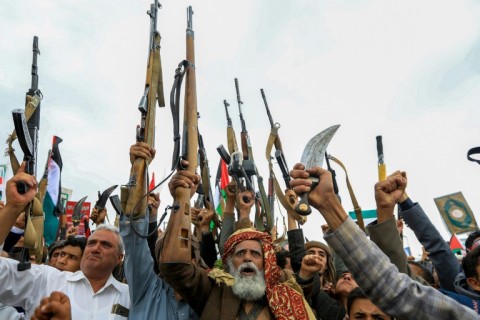
The deadly strikes in Gaza came hours after Hezbollah and its ally Hamas said they fired at Israeli positions from south Lebanon, while Yemen's Huthi rebels vowed to respond to Israeli warplanes hitting a key port.
On Sunday, Huthi military spokesperson Yahya Saree said the rebel's "response to the Israeli aggression against our country is inevitably coming and will be huge."
- Fire still raging -
The fire left raging by the strikes on rebel-held Hodeida port "is seen across the Middle East and the significance is clear," Israeli Defence Minister Yoav Gallant said on Saturday.
The Huthis control swathes of Yemen, including much of its Red Sea coast, while the internationally recognised government has withdrawn to Aden on the south coast.
Detailing the first strikes claimed by Israel in Yemen, Gallant warned of further operations if the Huthis "dare to attack us" after a rebel drone strike killed one in Tel Aviv on Friday.
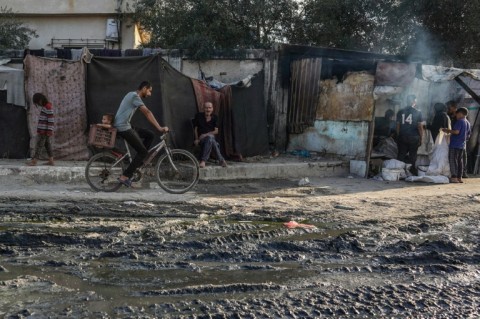
In Hodeida, three people were killed and 87 wounded, health officials said in a statement carried by Huthi media.
Firefighters struggled to contain the massive blaze caused by the strike on Hodeida, with a port employee saying fuel storage tanks and a power plant were still on fire on Sunday.
Following the strikes, the Israeli military said on Sunday it had intercepted a missile fired from Yemen towards the Red Sea resort town of Eilat. Saree said the rebels had fired ballistic missiles towards the port city.
- Netanyahu travels to Washington -
The trio of militant groups has vowed to keep up attacks on Israel until a truce ends the violence in Gaza, which lies in ruins, with most residents forced to flee their homes.
The Gaza war was triggered by Hamas's October 7 attack on southern Israel, which resulted in the deaths of 1,195 people, mostly civilians, according to an AFP tally based on Israeli figures.
The militants also seized 251 hostages, 116 of whom are still in Gaza, including 42 the Israeli military says are dead.
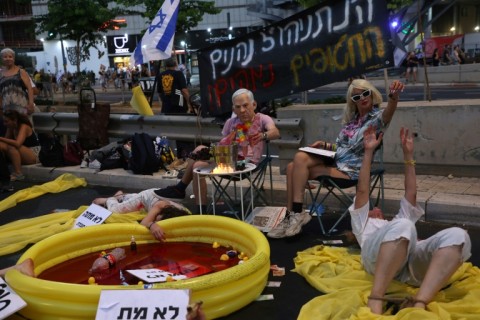
Israel's military retaliation to wipe out Hamas has killed at least 38,983 people, also mostly civilians, according to data from the health ministry in Hamas-ruled Gaza.
The war has also unleashed hunger and health crises in Gaza, with Israel and the United Nations trading blame for vital aid supplies failing to reach those in need.
After the detection of poliovirus in Gaza sewage, though no individual cases, the World Health Organization said there were "monumental" constraints to mounting a timely response.
WHO spokesman Christian Lindmeier said Friday the agency believes many more diseases are "spreading out of control" inside Gaza.
The months-long war has also brought Israelis to the streets, sometimes in their tens of thousands, focused on securing the release of the remaining hostages.
"Bring them home," demonstrator Ofira Azrieli said Saturday in Tel Aviv, appealing to Prime Minister Benjamin Netanyahu.
The premier is due to address US lawmakers Wednesday in Washington, where he will be under pressure to reach a ceasefire with Hamas.
His office announced that he will meet US President Joe Biden on Tuesday.

